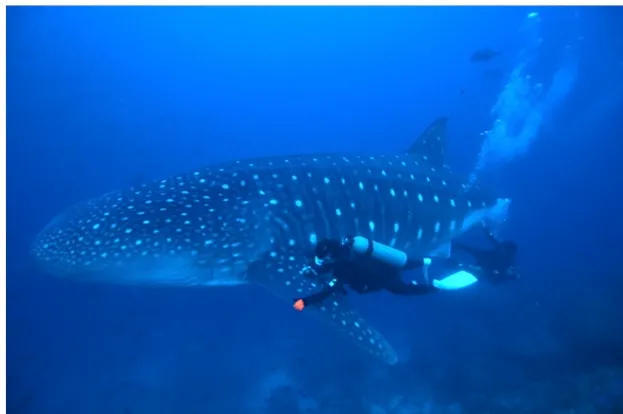The population of whale sharks visiting the Galápagos Islands has puzzled scientists for a while: over 90% of the sharks seem to be pregnant females, but to date this has never been proven.
In what was truly a team effort, in late July the Galápagos Whale Shark Project in partnership with the Galapagos Conservation Trust, the Galápagos National Park, University of San Francisco de Quito, Massey University, and Okinawa Churahima Foundation set out to apply facts to this theory.
The team focused their efforts in the north of the Marine Reserve, where the whale sharks have been found to congregate.
They undertook three ultrasounds on three females, and took blood samples from a mature male and female.
The blood samples and ultrasounds are currently being analysed before the team can confirm whether or not these large females are indeed pregnant.

Should the tests reveal positive results, the information will form an important part of the puzzle about whale shark reproduction, as Alex Hearn — one of the project leaders of the Whale Shark Project — explains:
“Almost nothing is known about the reproductive ecology of whale sharks. No pupping grounds have ever been identified, and the only pregnant female ever to have been analysed, found in Asia, carried over 300 pups, all at different stages of development.
“For years, we have suspected that the females in Galápagos are pregnant, and that they may give birth over an extended period of time and spatial area, out in the ocean.
"However, as yet, all this has been speculation. At last, with the successful testing of ultrasound scans and blood extraction in the wild, we have the tools to really examine this idea.”
Whale sharks had their status changed from Vulnerable to Endangered on the IUCN Red List in 2016. Highly valued on the international market, they are often hunted for their meat, fins, and oil.
If it is found that the females are pregnant, it could have a huge impact on the future management of whale sharks, and their protection.
Main image: Researchers perform an ultrasound on a large, mature female whale shark. © David Acuna